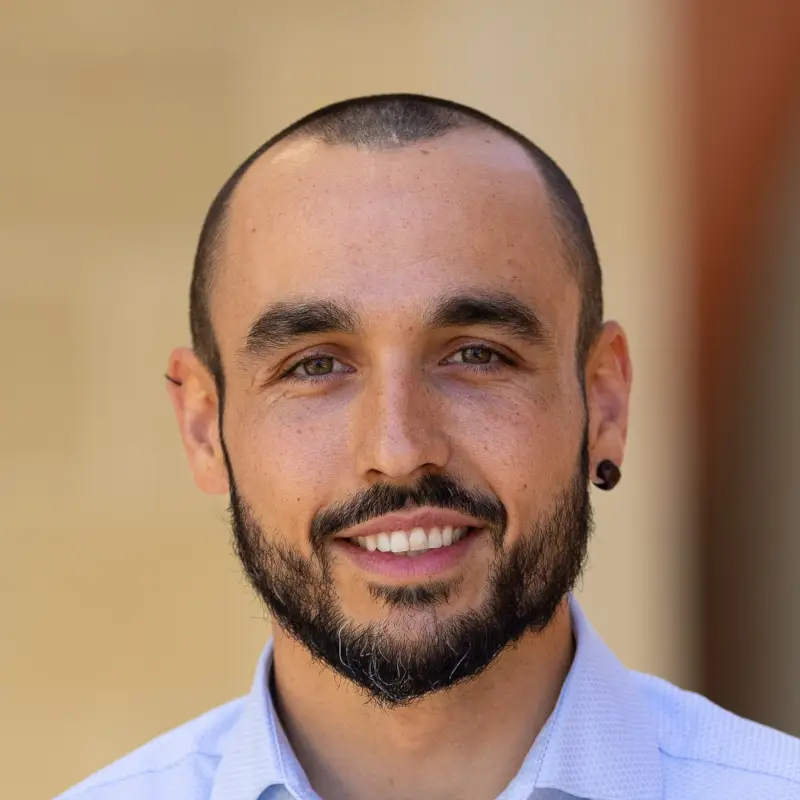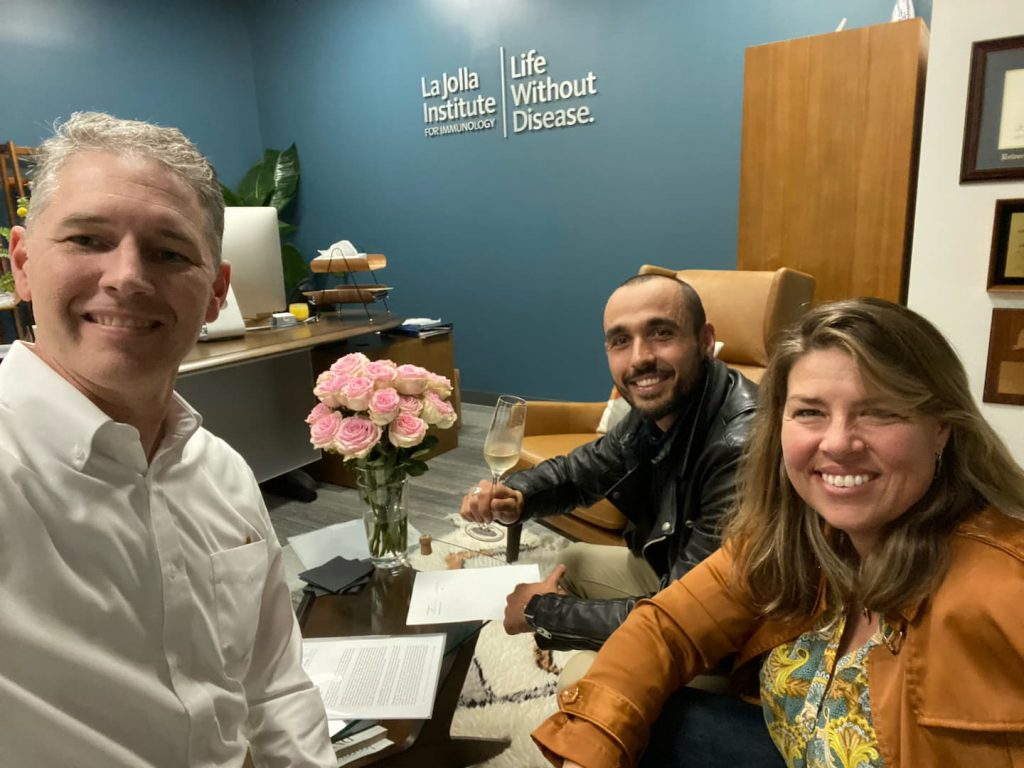
LA JOLLA, CA—Cancer researcher Miguel Reina-Campos, Ph.D., has joined the faculty of La Jolla Institute for Immunology (LJI) as an Assistant Professor to lead the Laboratory of Tissue Immune Networks. His laboratory at LJI aims to investigate the basis of CD8+ T cell tissue immunity to improve life-saving cancer immunotherapies.
“I am delighted to welcome Miguel to the LJI faculty,” says LJI Professor, President, & CEO Erica Ollmann Saphire, Ph.D., MBA. “Miguel amplifies our wealth of cancer immunology expertise, and his focus on understanding hormonal effects on disease dovetails with our new initiative in sex-based differences in the immune system.”
Reina-Campos, originally from Barcelona, Spain, is a biochemist specializing in cancer cell biology and immunology. Reina-Campos completed his Ph.D. in Biomedical Research in the laboratory of Jorge Moscat, Ph.D. and Maria T. Diaz-Meco, Ph.D., at Sanford Burnham Prebys, followed by a Postdoctoral Fellowship in the laboratory of Ananda Goldrath, Ph.D., at the University of California, San Diego.
Reina-Campos’s research is focused on specialized immune cells called tissue-resident T cells. Unlike T cells circulating in the bloodstream, tissue-resident T cells live deep within our organs, such as the colon or the liver, where they provide fast and robust protection against future infections and tumors.
“However, much like cities across the world, our organs also have their own unique architectures that their immune residents need to adapt to,” says Reina-Campos.

The Reina Lab will focus on the strategies that make tissue-resident T cells proficient at their jobs in hopes of bringing newer approaches to revamping immune responses against cancer.
“Tissue-resident T cells are professional survivalists,” says Reina-Campos, “These are the traits we need in T cells fighting tumors; we just need to look at the solutions Nature has already found.” He plans on doing so by spying on T cells in their natural environments using state-of-the-art spatial transcriptomics and CRISPR technologies. “Imagine you could not only look but also listen in on the action; the goal is to illuminate the secret lives of tissue-resident immune cells,” says Reina-Campos. His research might also benefit T cell-driven autoimmune diseases, such as colitis.
Reina-Campos says leading a laboratory at LJI will allow him to establish strong collaborations and work closely with experts in epigenetics, metabolomics, and human immunity. “What’s amazing about LJI is the density of immune-focused labs and the availability of resources,” adds Reina-Campos. “I’m excited to get started. There’s so much to be done.”
###




